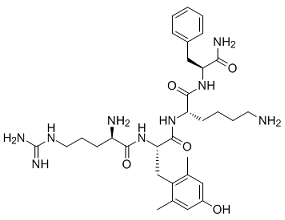The effect of chelating agents EDTA and 1, 10-phenanthroline on enzymatic activity was not obvious, which indicated that PytY might not AbMole Povidone iodine require a cofactor during the hydrolysis of pyrethroids. Some Ser proteases usually form a lid in tertiary structures to prevent the inhibition of PMSF on Ser residues. In this test, the enzyme activity of PytY was heavily inhibited by PMSF, suggesting that this pyrethroid-degrading esterase did not possess the lid structure. These characterizations were similar to pyrethroid hydrolase PytZ, which was previously reported. The successful translation of findings from clinical trials into health care practice, guidelines and patient information depends on the timely, accurate and unbiased AbMole Miglitol reporting of trial methodology and results. The quality and reporting of clinical trials and systematic reviews can, however, be sub-optimal. Even within the design of RCTs, for example, there is the inherent risk of bias skewing results at various stages and minimizing internal and external validity. First, there is empirical evidence to suggest that lack of, or inadequate attention to, random allocation, allocation concealment, blinding and intention to treat can lead to bias. Second, setting, participants, demographic data, co-medication e.g. can limit the generalizability of the trial results. There is also increasing evidence of selective reporting in clinical trial findings, with some recent examples in pharmacologic treatment for depression and other psychiatric disorders. Since the early 1990s, medical journal editors, methodologists, and clinical researchers have developed reporting guidelines as tools to help improve the quality of reporting in health research articles. A reporting guideline is a checklist, flow diagram, or explicit text to guide authors in reporting a specific type of research, developed using explicit methodology. The poor quality of reporting combined with the selective reporting of trial findings undermines timely, accurate and unbiased translation of trial results in health care practice. It has been shown, firstly, that entire trials with primarily negative results were not published at all. Secondly, it has more recently been shown that some published trials report information selectively, with the effect of prioritizing the benefit of a medical measure or suppressing the results concerning its potential harm. There is a consensus in medical research, in publication ethics and among the leading scientific journals that trial registration currently represents the best strategy for countering selective publication or making it suitably transparent. Trial registers have existed since  the 1960s. It is obvious that authors are accountable for their manuscripts, and it is their obligation to prepare their research articles in an accurate.
the 1960s. It is obvious that authors are accountable for their manuscripts, and it is their obligation to prepare their research articles in an accurate.